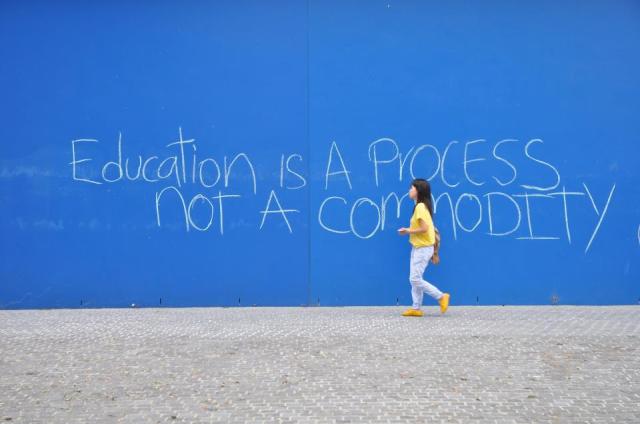
Indeed it is two years since I rambled on about starting a new blog, alongside continuing in my role as Coordinator of In Defence of Youth Work – As time goes by, why another blog? In the event, the demands of doing my best as IDYW Coordinator coupled with personal upheaval meant nowt happened on here.
However, I’m about to withdraw from my role as IDYW Coordinator, taking something of a back seat in the forum’s activities. Indeed my last ‘official’ appearance as Coordinator will be at the forthcoming Transformative Youth Work conference in Plymouth, September 4-6. I’ll be offering a paper, ‘Resisting Impact – a neoliberal tool of social conformity’ and be a supposed ‘expert’ panel member, reflecting critically on youth work evaluation.
Discussion Paper
Title: Resisting Impact – a neoliberal tool of social conformity
Key Words: (up to five) Neoliberalism, Youth Work, Measurement, Character, Resistance
Abstract: (maximum 250 words)
For four decades neoliberalism has mounted an extraordinary behavioural modification project, seeking to manufacture in its own image the self-centred, possessive individual, the satisfied, yet never satiated consumer. Few of us have escaped completely from its clutches. In its armoury of manipulation, we find the discourse of impact with its outcomes-fixated agenda and its relentless pursuit of comparative data, unveiled in the early 1990’s as the means ‘to do more with less’, nowadays crucially used as the means of changing how youth workers see both themselves and young people. The casualty in this shift to the imposition of a prescriptive, supposedly measurable script in advance of practice has been an open youth work founded on voluntary relationships and improvised conversations, ungoverned by time, which take place on young people’s terms and, dare we say it, for their own sake. The neoliberal impact agenda abhors the unruly, the unpredictable, the ‘wild spaces’, within which the youth worker and young person are educated by one another. As Filip Coussee argues, it strives ‘to formalise the informal’, to impose order.
Given youth work is never ideologically neutral and is fundamentally concerned with how young people understand themselves and the world they occupy we will tangle with two inextricably interrelated, immeasurable questions.
- In what sort of society do we wish to live? What are its ‘characteristics’?
- And, depending on our answer, what sort of ‘characters’, do we think, are best suited to either the maintenance of what is or the creation of something yet to be?
No surprises there!
In my next post, I’ll pull together links to a number of articles critical of neoliberalism’s insidious influence upon youth work.
